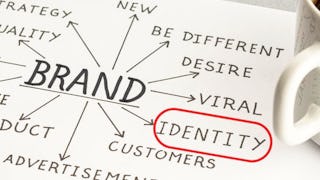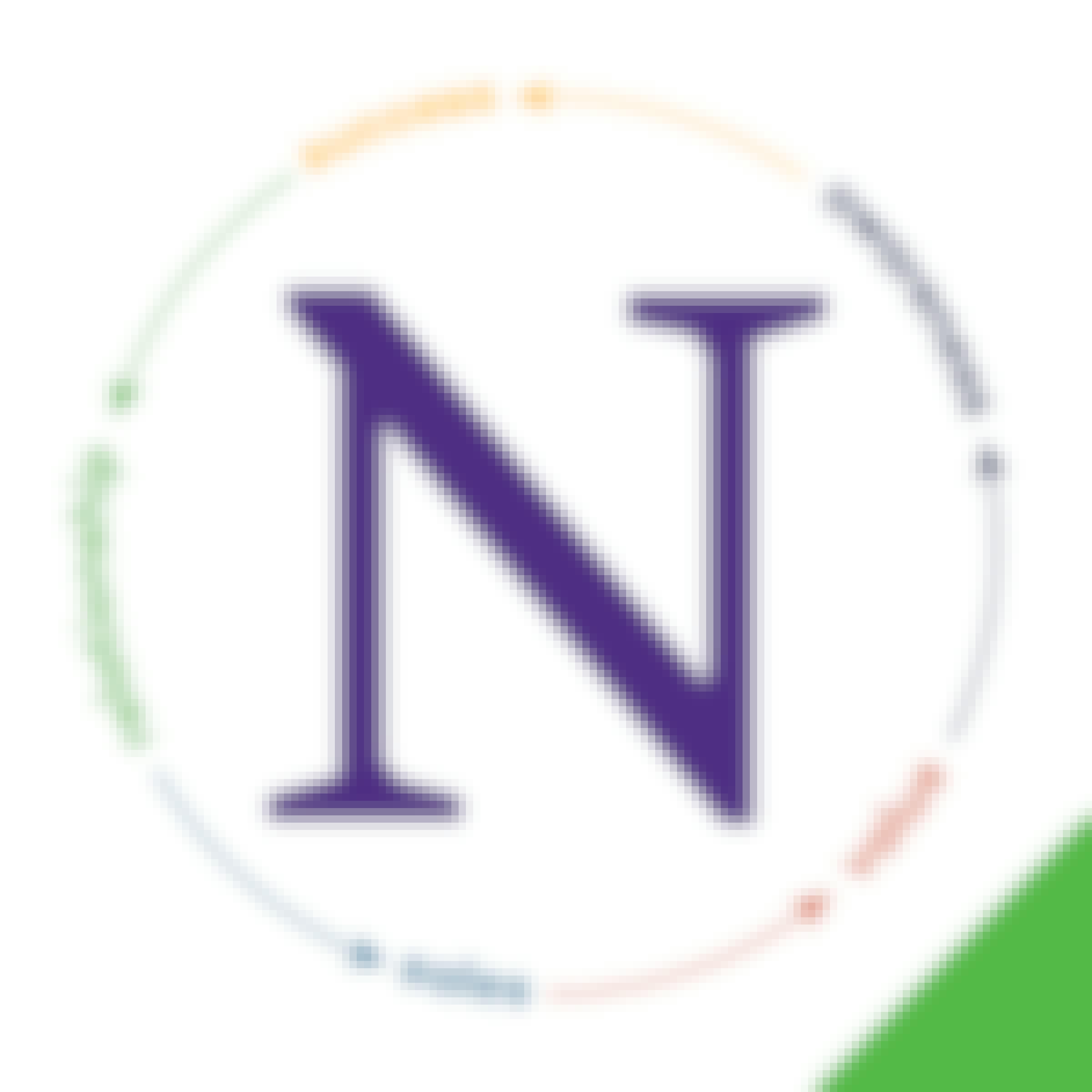- Browse
- Healthcare Data Analytics
Results for "healthcare data analytics"
 Status: Free TrialFree TrialC
Status: Free TrialFree TrialCCalifornia Institute of the Arts
Skills you'll gain: Intellectual Property, Business Planning, Competitive Analysis, Business Risk Management, Financial Acumen, Tax Preparation, Business Process Automation, Business Strategy, Contract Management, Peer Review, Process Improvement, Financial Analysis, Financial Forecasting, Client Services, Financial Modeling, Market Analysis, Accounting, Entrepreneurship, Marketing, Leadership and Management
4.7·Rating, 4.7 out of 5 stars436 reviewsBeginner · Specialization · 3 - 6 Months
 Status: PreviewPreviewR
Status: PreviewPreviewRRutgers the State University of New Jersey
Skills you'll gain: Digital Transformation, Customer Engagement, Business Technologies, Augmented and Virtual Reality (AR/VR), Customer experience strategy (CX), Business Marketing, Cross-Functional Collaboration, Internet Of Things, Emerging Technologies, Business Ethics, Customer Retention, Business Relationship Management, FinTech, Blockchain, Innovation, Artificial Intelligence
4.4·Rating, 4.4 out of 5 stars450 reviewsIntermediate · Course · 1 - 3 Months
 Status: PreviewPreviewP
Status: PreviewPreviewPPontificia Universidad Católica del Perú
Skills you'll gain: Brand Strategy, Branding, Brand Awareness, Content Strategy, Business Strategies, Market Research, Content Creation, Creative Design, Target Audience, Value Propositions
4.9·Rating, 4.9 out of 5 stars184 reviewsBeginner · Course · 1 - 3 Months
 Status: PreviewPreviewK
Status: PreviewPreviewKKennesaw State University
Skills you'll gain: Value Propositions, Business Modeling, Presentations, Customer Analysis, Innovation, Customer Relationship Management, Entrepreneurship, Marketing Channel, Business Strategy, Strategic Partnership, Cost Management, Revenue Management, Resource Management
4.7·Rating, 4.7 out of 5 stars688 reviewsBeginner · Course · 1 - 3 Months
 Status: PreviewPreviewU
Status: PreviewPreviewUUniversità di Napoli Federico II
Skills you'll gain: English Language, Storytelling, Language Learning, Oral Expression, Writing, Intercultural Competence, Interpersonal Communications, Vocabulary, Culture, Trend Analysis, Grammar, Oral Comprehension, Descriptive Statistics
4.5·Rating, 4.5 out of 5 stars79 reviewsIntermediate · Course · 1 - 3 Months
 Status: Free TrialFree Trial
Status: Free TrialFree TrialSkills you'll gain: Canva (Software), Logo Design, Style Guides, Marketing Design, Branding, Marketing Materials, Brand Management, Organizational Skills, Marketing, File Management, Graphic Design, Business, Digital Marketing
4.6·Rating, 4.6 out of 5 stars928 reviewsIntermediate · Guided Project · Less Than 2 Hours
 Status: Free TrialFree Trial
Status: Free TrialFree TrialSkills you'll gain: Earned Value Management, Project Controls, Project Planning, Project Management Software, Cost Management, Budget Management, Performance Reporting, Process Improvement and Optimization, Configuration Management, Dashboard, System Configuration, Data Import/Export, Data Visualization
4.7·Rating, 4.7 out of 5 stars104 reviewsBeginner · Specialization · 3 - 6 Months
 Status: Free TrialFree Trial
Status: Free TrialFree TrialSkills you'll gain: Generative AI, Fraud detection, AI Personalization, Financial Regulation, Predictive Analytics, Financial Services, Personalized Service, Financial Forecasting, Financial Trading, Retail Banking, Financial Reporting, Compliance Management, Artificial Intelligence, Risk Analysis, Emerging Technologies, Automation
3.6·Rating, 3.6 out of 5 stars68 reviewsBeginner · Course · 1 - 4 Weeks
 Status: Free TrialFree Trial
Status: Free TrialFree TrialSkills you'll gain: SAS (Software), Case Studies, Program Development, Scripting, Data Processing, Automation, Statistical Programming, Data Manipulation, Debugging, Data Validation
4.8·Rating, 4.8 out of 5 stars149 reviewsIntermediate · Course · 1 - 3 Months
 Status: Free TrialFree TrialG
Status: Free TrialFree TrialGGoogle Cloud
Skills you'll gain: Identity and Access Management, Cloud Security, Google Cloud Platform, Security Controls, Cloud Computing, Virtual Networking, Firewall, Network Security, Data Access, Role-Based Access Control (RBAC), Authorization (Computing), Single Sign-On (SSO), Authentications, Public Cloud, Load Balancing
4.7·Rating, 4.7 out of 5 stars1.1K reviewsIntermediate · Course · 1 - 3 Months
 Status: Free TrialFree TrialN
Status: Free TrialFree TrialNNorthwestern University
Skills you'll gain: Blogs, Social Media Marketing, Marketing Strategies, Social Media Strategy, Social Media, Content Marketing, Marketing Effectiveness, Strategic Marketing, Digital Media Strategy, Target Market, Drive Engagement, Customer Engagement, Content Creation, Multimedia, Writing
4.8·Rating, 4.8 out of 5 stars1.2K reviewsMixed · Course · 1 - 4 Weeks
 Status: PreviewPreviewN
Status: PreviewPreviewNNational Taiwan University
Skills you'll gain: Web Scraping, Plot (Graphics), Machine Learning, Business Mathematics, Operations Research, Business Analytics, Business Economics, Python Programming, Computational Thinking, User Interface (UI) Design, Computer Programming, Object Oriented Programming (OOP)
4.9·Rating, 4.9 out of 5 stars163 reviewsMixed · Course · 1 - 3 Months
Searches related to healthcare data analytics
In summary, here are 10 of our most popular healthcare data analytics courses
- Building Your Freelancing Career: California Institute of the Arts
- New Technologies for Business Leaders: Rutgers the State University of New Jersey
- Estrategia de Identidad de una Marca: Pontificia Universidad Católica del Perú
- Business Model Canvas: A Tool for Entrepreneurs and Innovators (Project-Centered Course): Kennesaw State University
- English Upper Intermediate B2.1: Università di Napoli Federico II
- Create a Business Marketing Brand Kit Using Canva: Coursera
- Planning & Control with Oracle Primavera PPM Professional: Packt
- Introduction to Generative AI in Finance: Coursera
- SAS Macro Language: SAS
- Managing Security in Google Cloud: Google Cloud










